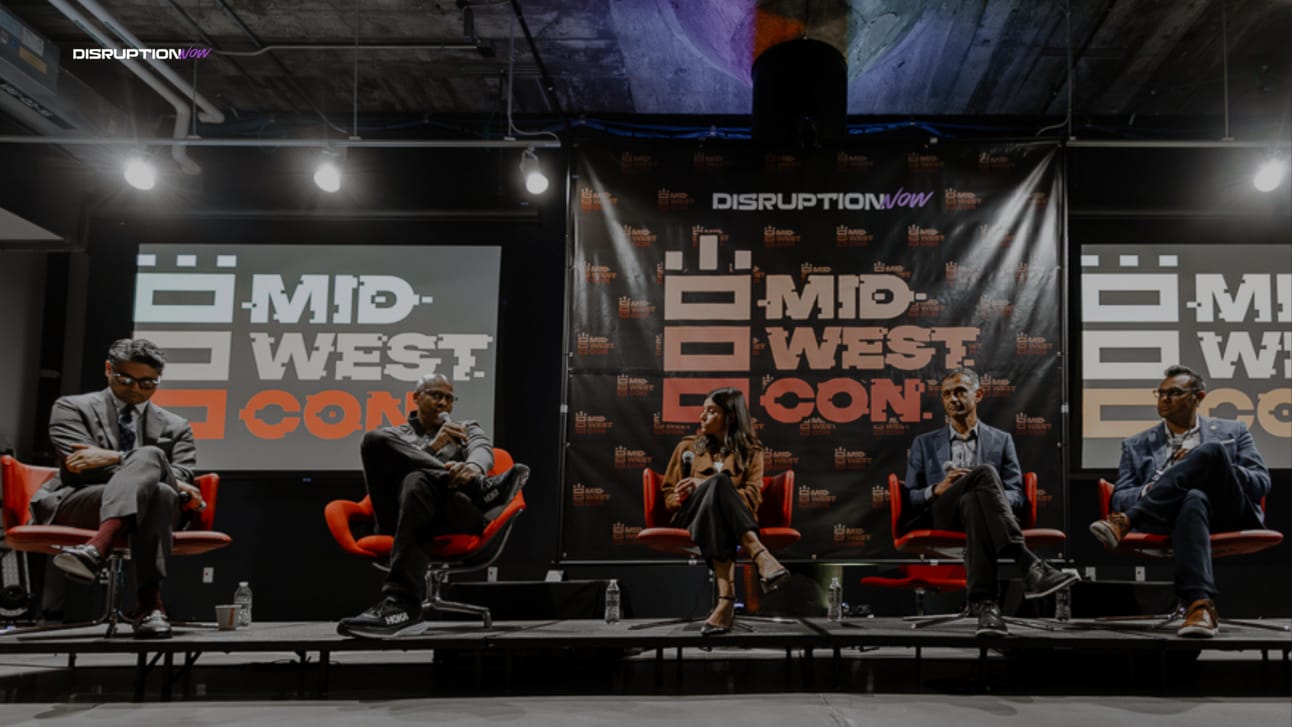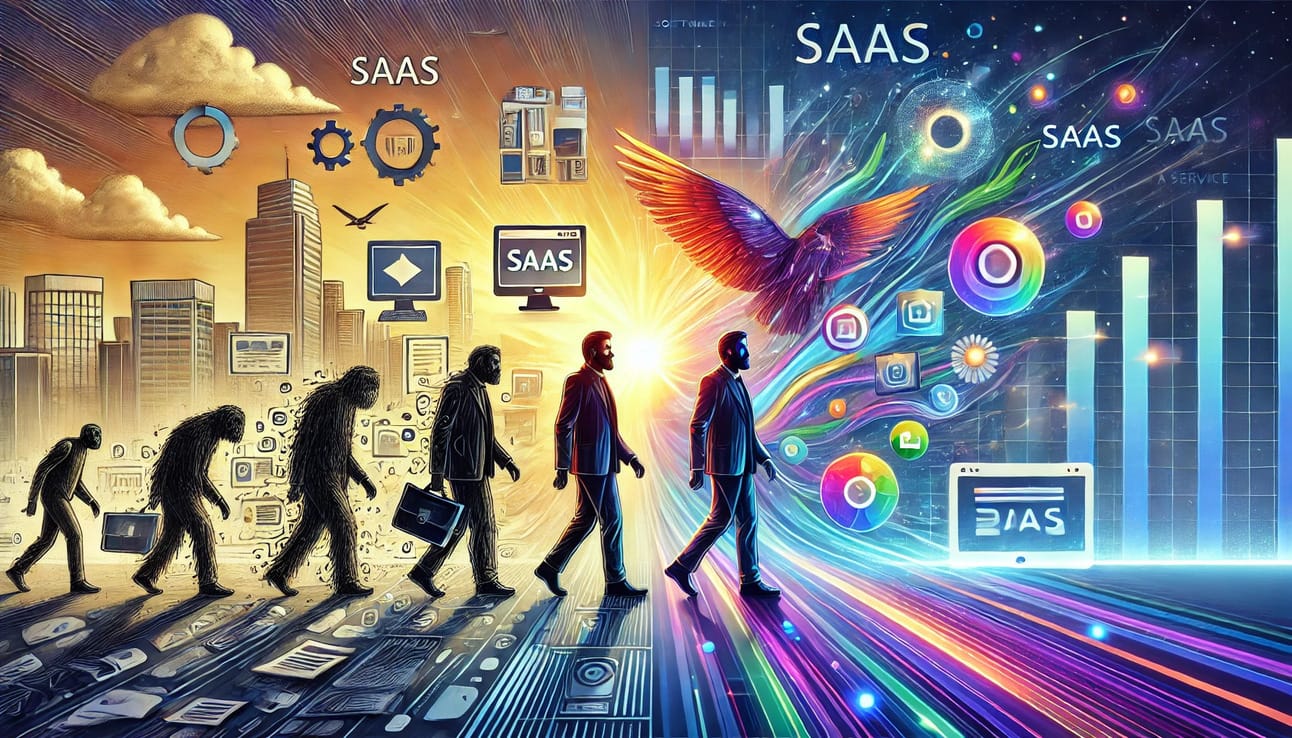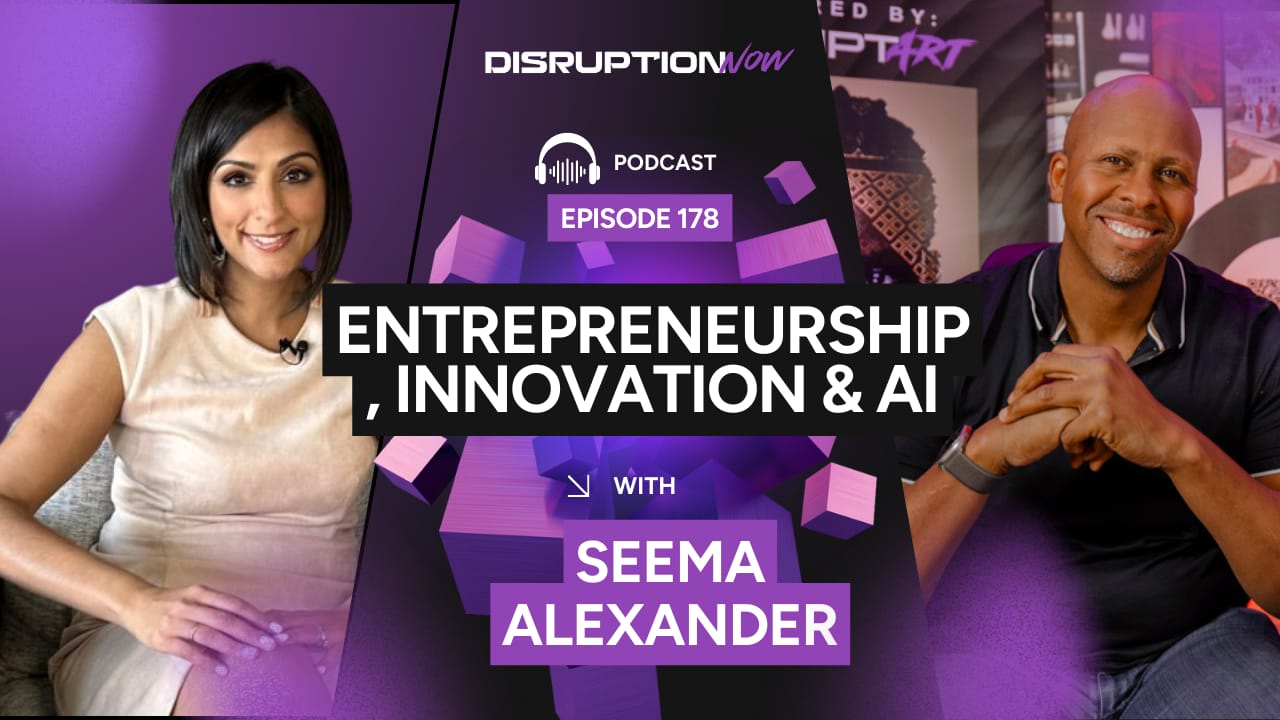- Disruption Now's Newsletter
- Posts
- SaaS Isn’t Dead—But Bland Software Is
SaaS Isn’t Dead—But Bland Software Is
“All software companies taste like chicken. They’re selling different products, but 80% of what they do is pretty much the same.”
Smith likely meant software companies resemble those bland chicken dinners we’ve all experienced at dull receptions—predictable, flavorless, yet reliably consistent. While bland food makes for poor dining, predictability is exceptional in scalable businesses. This is precisely why, since the 2010s, SaaS companies have become predictable money-printing machines. So what happens next?
Owning and Modeling Your Data
The landscape has dramatically shifted. The software industry faces three disruptive trends:
In-House AI Powerhouses: Companies no longer need expensive, rigid SaaS solutions. AI allows internal teams to build precisely what they require quickly.
Skyrocketing Customer Expectations: Customers now expect rapid innovation and personalized solutions. Your business risks becoming obsolete if your SaaS product doesn’t evolve rapidly with AI-driven alternatives.
Mass Customization as Standard: AI significantly lowers customization costs, making personalized software affordable. However, traditional SaaS models struggle to manage and price these individualized solutions.
2025: Our Disruptive Take – No More Bland Chicken SaaS
Claims that SaaS is dead are exaggerated and misguided. SaaS isn’t dead, but the era of unseasoned “salt-and-pepper” software companies is over. Customers now demand tailored solutions, blending unique spices and flavors to fit their needs. Paraphrasing Smith: Software might still taste like chicken, but we’re now cooking with exotic, diverse ingredients. Those who discover the winning recipe first will dominate. Great SaaS companies will thrive, but the business will evolve, becoming more flexible, customized, and challenging to value using traditional metrics.
If Per-Seat Pricing Fades, What’s Next? Three emerging pricing models are reshaping the landscape:
Outcome-Based Pricing - Pay only for results—CRM charges per qualified lead, customer support charges per resolved ticket. Intercom already experiments with this. The upside: customers only pay for proven value. The downside: unpredictable revenue streams. CFOs and private equity firms despise revenue unpredictability, complicating valuation and funding models.
Usage-Based Pricing—This is the AWS model: pay per unit of use, such as AI tokens. It is ideal for products with unpredictable usage or rapidly evolving technology. The drawback is equally unpredictable customer bills and revenues, causing discomfort for CFOs on both sides of the transaction.
Hybrid Models - A mixture of subscription basics with usage or outcome-based add-ons. While complex, this blended model offers a compromise. Expect more SaaS companies to adopt this approach, though it complicates revenue predictability, investor valuations, and funding.
Implications for Tech Companies
If you’re in software today, you need to rethink pricing strategies:
• Leverage AI for Customization: Cost-effective customization through AI is critical. If you hesitate, agile startups won’t.
• Demonstrate Clear Value: In a world where customers can DIY software solutions, proving your unique value, through reliability, superior quality, and ongoing AI integration, is essential.
Why This Matters
This shift affects everyone in tech. AI disruption isn’t flashy headlines; it’s incremental changes—pricing adjustments, new features, and evolving customer expectations. Witnessing an entire industry reinvent itself in real time is fascinating. Companies that adapt quickly will succeed, while those clinging to old models may struggle to survive.
Learn About MidwestCon 2025

MidwestCon 2025: Where Innovation Meets Inclusion
Mark your calendars! MidwestCon 2025 will take place this September. It will bring innovators, policymakers, and visionaries together to ensure that emerging technologies like AI remain accessible and human-centric.
📅Pre-Conference Activities: September 9
📅Main Conference: September 10-11
📍1819 Innovation Hub, Cincinnati, OH
The Disruption Now Podcast
In this episode of the Disruption Now podcast, host Rob Richardson engages in a dynamic conversation with Seema Alexander, a seasoned entrepreneur and business strategist. They delve into Seema's rich background, from her upbringing in an entrepreneurial immigrant family to her current roles as co-founder of Virgent AI and DC Startup & Tech Week. The discussion traverses the evolution of entrepreneurship, the pivotal role of emerging technologies like AI, and the significance of community collaboration in fostering innovation.
Keep Disrupting!
Rob Richardson, Chief Curator of MidwestCon/Founder & CEO of Disruption Now

